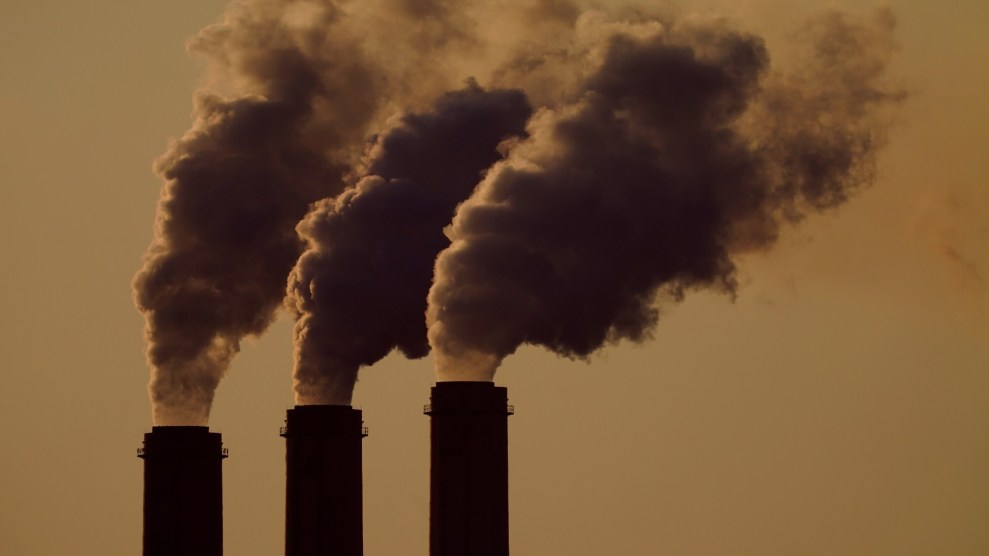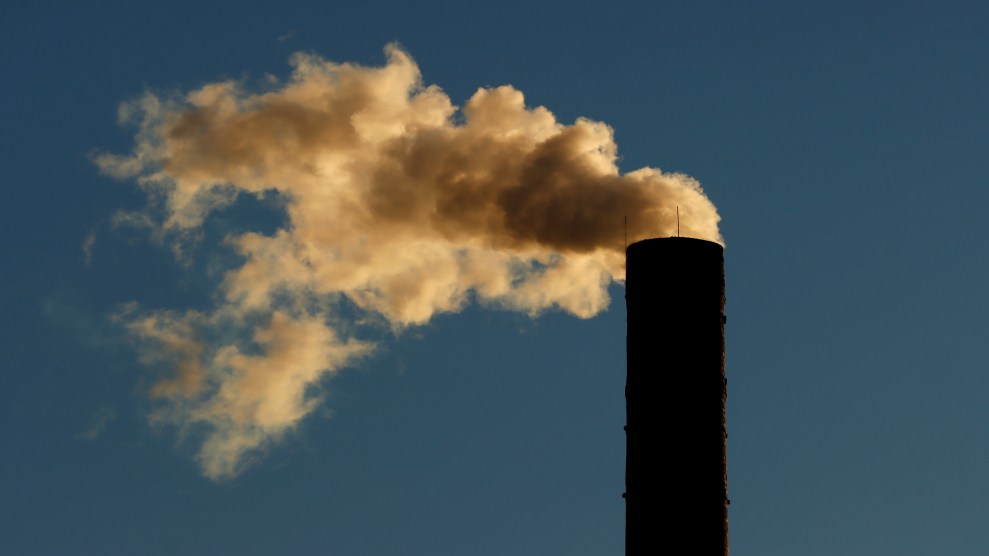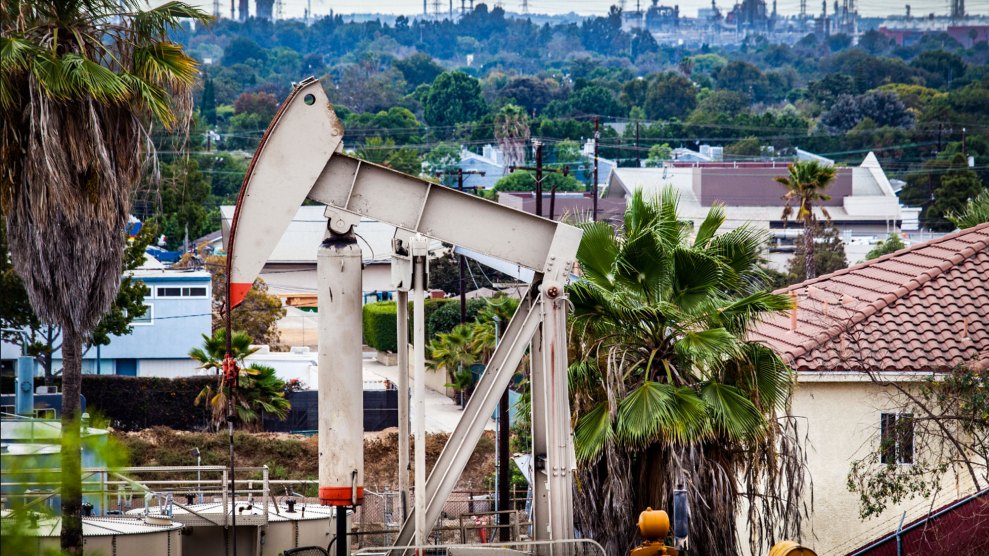
Charlie Riedel/AP
In a historic move, the Environmental Protection Agency will propose limits on greenhouse gas emissions from power plants, according to the New York Times. If implemented, it would be the first time that the federal government has restricted carbon dioxide emissions from existing coal and gas-fired power plants, which produce 25 percent of the United States’ planet-warming pollution. Under the plan, virtually all power plants would capture or cut almost all of their carbon emissions by 2040.
The Times‘ Coral Davenport and Lisa Friedman write:
The proposed rule is sure to face opposition from the fossil fuel industry, power plant operators and their allies in Congress. It is likely to draw an immediate legal challenge from a group of Republican attorneys general that has already sued the Biden administration to stop other climate policies. A future administration could also weaken the regulation.
The regulation, proposed by the Environmental Protection Agency, is being reviewed by the White House’s Office of Management and Budget, and could still be adjusted.
Maria Michalos, an E.P.A. spokeswoman, said the agency is “moving urgently to advance standards that protect people and the planet, building on the momentum from President Biden’s Investing in America economic agenda, including proposals to address carbon emissions from new and existing power plants.”
It would not mandate the use of carbon capture equipment, a nascent and expensive technology; rather, it would set caps on pollution rates that plant operators would have to meet. They could do that by using a different technology or, in the case of gas plants, switching to a fuel source like green hydrogen, which does not emit carbon, according to the people familiar with the matter. But the regulation could lead to the broader adoption of carbon capture technology, the people said.

















